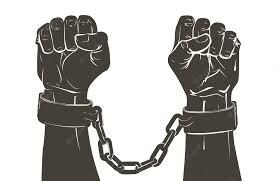By Nelson Okwonna
I doubt if I will ever get used to dentist visits; even minor procedures like routine cleaning get my pulse racing; however, we know dental visits are the least of our worries when the subject of pain is considered. Then, we often think of the type that blocks the entire horizon – the kind that makes it difficult to see anything else – rape, homelessness, cancer, torture, kidnapping, death and fear of death. It is difficult to relate until it comes home, until we experience firsthand the ravages of armed banditry, terrorism, HIV/AIDS, sickle cell anaemia disease, racism, false accusations and cancer; we find it hard to understand.
Trauma Creates Victims
These kinds of pain – the kind that blocks the entire horizon and demand our consistent and immediate attention – have the capacity to make victims of us. The mindset of victimhood is not necessarily the mindset of hopelessness, rather it is the mindset that somehow, life has dealt us a bad hand. In response, we are quick to conclude that something, someone is responsible. Even when the trauma is imaginary, the victim mindset is a real scenario that demand attention because we easily find ourselves in the position more often than we care to admit. Consider the fact that mere existence, life itself, could be adjudged as a traumatic experience.
The Victim’s Sense of Justice
Naturally, a victim demands justice – to right the wrong. With this natural desire is the sense of fury required to execute this justice. However, in many cases of trauma, the mechanism by which this justice should be executed is not always possible or clear. For example, the African Americans of USA have historically suffered great injustice in the hands of their Caucasian co-citizens – from slavery to racial discrimination; yet it is not apparent how exactly they are to exact justice for the wrong done to them.
Bitterness and Propensity for Sin
This inability to resolve the justice requirement could make the victim bitter or lower his resistance to actions he would otherwise have believed to be wrong. Alcoholism and drug use are vices often undertaken to “numb the pain”; individuals with a victim mindset believe that some-how they are entitled to such vices. Prostitution, youth violence, suicide, reprisal movements are often actions taken by individuals who otherwise wouldn’t have done so if not for the sense that somehow, they are “entitled” to some reprieve. This vicious cycle of trauma begetting bitterness and justification of vice is responsible for a lot of the evil we see in our world today, from religious fundamentalism to domestic issues. It leads to what I call a caricature of the soul – a previous article does justice to this.
Unresolved Bitterness Creates Caricatures
The initial trauma that caused the state of victimhood is usually unresolved or is perceived unresolvable, yet the outworking of bitterness and vice creates perversions of reality for the victim, who over time adopts a different standard of judgment for themselves and for others. A case study can be seen with the Indian Americans, Afro-Americans and the aborigines of Australia; we also see this even with oppressed minority tribes in Nigeria. Make no mistake, the oppression can be very much real, but the bitterness and its effects are even more so.
Is there Hope for the Victim?
Yea, there is. if this victim realizes that the bitterness and resultant vices are sins, and repents from them, then he can come to joy. Joy is that delightful sense of God-presence with which every oppression and trauma can be overcome. It is not the absence of issues, but the presence of something despite the issues. You see, the traumatic events of our lives, regardless of how intense they are, do not influence our relationship with God in any way, they do not even provide insight on the state of that relationship.
However, the bitterness and vices that can result from that traumatic experience can easily take us far away from God and into dark places, which is why repentance is required. It may sound strange that we would need to tell the victim to repent, but we must. Life might have dealt him a bad hand, things could be tough, yet the righteous requirements of God are the same. Of course, the victim has a lot of questions – one of which is “why evil happens to innocent people?” I’ve written on this earlier… Yes, dear, evil things happen to good people all the time; yet the good news is that Good can co-exist even in that evil state.
Rise or Fall: Choosing Life
It is very true that individuals who have experienced intense trauma can retain sanity and joy despite their trauma and overcome the appeals of bitterness; it is also true that it is only by so doing that they can overcome the slide into bitterness and the accompanying vices. Traumatic events cannot leave us the same, we either rise with them or slip; the message of the Gospel is that we can rise with them. The gospel is for the poor – the humbled, the broken hearted, the mourning. It is for the individuals who have met with life, seen their total incapacities and have reached out to God; we can boldly say that God is very near to all who call upon Him.
God with Us
Now, we are quick to call on God to save us from this evil and rightly so; but first of all, we must know that He is with us, even in this evil. It is this God-with-us consciousness that compel forgiveness; yes, you must forgive others and yourself. This does not mean that you mustn’t eventually overcome the evil, but that it finds no place in your heart. Even if your case is of a terminal nature and will result in the loss of life and there is nothing that can be done to avert it, then be assured that you’ve trusted in the one who can raise the dead and who has the capacity to judge righteously. When Jesus said, “unto thy hands I commit my Spirit”, He reminds us of the right disposition for all who’ve trusted in God and have met an overwhelming evil. We cannot commit ourselves to revenge, to bitterness or self-pity, we cannot even trust in the mercies of men, rather, we can commit ourselves to God and come, bearing sacrifices of Joy.
May God’s grace be with you and yours. Amen













